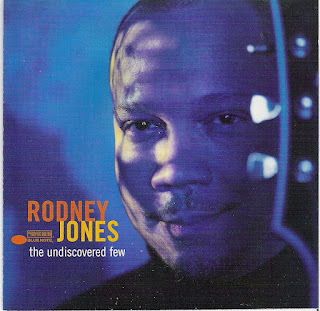The Country Gentlemen
On the Road (and more)
What Buena Vista Social Club did for Cuban music, O Brother Where Art Thou? did for folk and bluegrass. Truth be told it didn't take much to prompt some sort of sudden stampede to a certain type of music. A song by Iz appears on E.R., suddenly everyone is a fan of Hawaiian music. But a full movie, documentary or not, that can send people into a fury.
Of course, I have this CD, so that means that I had to have gotten caught up in it somehow, though there are even odds I picked it up merely because it said "On the Road," which is probably even more of a poser move, really.
Which is not to say that I don't really like bluegrass, and even had picked up some promos before O Brother Where Art Thou came out. But I'd be kidding myself if I didn't admit that there was a sharp increase afterward, both from heightened interest and from increased availability.
This is pretty straight O Brother style, it turns out. The Country Gentlemen are well known enough that I knew about them before I looked at the CD, so it's not entirely certain I have this promo just because of the movie. But it's standard issue, 'folksy' vocal harmonies, simple danceable rhythms.
Not the Rawhide I was hoping for.
Now they're doing an Englishman singing bluegrass music...strange. There is a lot of banter with a corny dry wit. There's a section where he 'introduces the band'...to each other. He almost introduces a feature player with 'here comes trouble." It's hokey but also has a charm to it.
And of course there is plenty of religious music going about.
Rodney Jones
The Undiscovered Few
I have well noted trepidations about guitar, and as I had discussed earlier, often you can judge a CD by its cover. But if I had thought about it this really would have fit into Blue Note's pattern, it's not really a weird angle, but there is that forced perspective putting the guitar in the foreground, so it's just a modern version of their classic cover picture.
But even though the electric guitar almost always makes things sound a little fusion-y, this is a progressive modern jazz CD like Terrasson or Kirkland or any of the other modern jazz players that I've put in so far. Which is great, because I love that stuff.
The liner notes are fairly philosophical, kind of bordering between the land of a pop Buddhist, a twelve step program graduate and a self help book. It's the usual artist statement, the commitment to the (in this case unnamed) influences that formed his understanding of music, a little wax nostalgic about his early encounters with music ("As a young child of six or seven I remember sitting underneath an old cabinet-style record player. I would listen and dream.")
But then it wanders into contimplation of the human journey and that whole "Who are we and why are we here," bit. The Undiscovered Few, it turns out, are his four principles that have some sort of importance to (at least to him) human existance. They are-
- The Desire to know myself
- The Experience of finding myself
- Being Myself
- Willingness to take the next step
That's sort of the advantage/disadvantage of wordless jazz. The album, with certain restrictions, can be more or less about whatever you decide it's about and you can assign whatever meaning you want to it. But unless the person listening to it reads the liner notes (and presumably agrees with you) they're pretty much going to assign whatever meaning they want to it. And it might be, "This is some smooth music to play while I try and make it with my lady." Or just decide that My Favorite Things is about someone's favorite things. Or a tribute to John Coltrane. Or just a chart you dig.
There isn't a set group on the whole album, there are various larger and smaller groups depending. Greg Osby makes a few appearances on alto saxophone. Violinist Regina Carter does a duet with him on Through the Eyes of a Child. In that regard there is a lot of variation on the album.
All of this is making the Australian V8 Supercars race at Surfer's Paradise a little more mellow, despite the knife fight for first place in the last few laps.
Regina Carter returns for another duet, this time called Tears of a Forgotten Child. Makes you wonder what that child saw through his eyes in the first duet...
The album opens and closes with barn burners, holding a soft gooey center of gentler tracks. Ah, but it ends on the still enigmatic jazz fade out. Still don't get that.






















